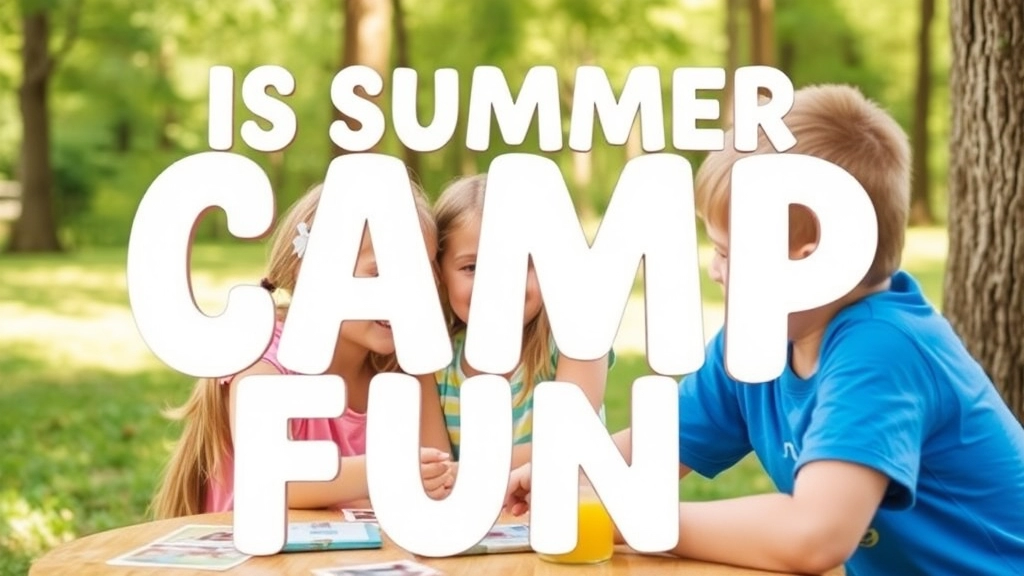Ever wondered, “Is summer camp fun?” Let’s dive into the magic of summer camps and discover why they are a haven for kids. From a variety of exciting activities to building lifelong friendships, summer camps offer an enriching experience that goes beyond just fun. Imagine your child learning new skills, exploring nature, and gaining independence—all while unplugging from technology and fostering creativity. It’s a recipe for unforgettable memories and personal growth.
At summer camps, kids engage in teamwork and collaboration, enhancing their social skills and confidence. They also enjoy physical fitness through sports and games, promoting a healthy lifestyle. The hands-on experiences and outdoor adventures provide opportunities for reflection and self-discovery. So, if you’re pondering whether to send your child to camp, think about the transformative journey they’ll embark on, creating lasting memories and cherishing childhood adventures. Summer camps are not just a break from routine; they are a gateway to a world of fun, learning, and growth.
Variety of Exciting Activities at Summer Camps
Alright, let’s dive into the variety of exciting activities at summer camps. Ever wondered why parents rave about summer camps? Or why kids come back home with tales of adventure and new skills? Well, it’s because summer camps are packed with a smorgasbord of activities that cater to every interest and personality. So, let’s break it down.
Why Are Summer Camp Activities So Important?
First off, let’s address the elephant in the room. Why are these activities even a big deal? Well, kids today are often glued to screens, and parents are worried about it. Summer camps offer a much-needed break from the digital world and a chance to engage in real-world activities. Here’s what makes these activities so crucial:
- Physical Exercise: Kids get to move around and stay active.
- Mental Stimulation: Activities challenge their brains in fun ways.
- Social Interaction: They get to meet and interact with peers.
Types of Activities You Can Expect
Outdoor Adventures
When we talk about outdoor adventures, think hiking, canoeing, and zip-lining. These activities not only get the adrenaline pumping but also teach kids about nature. Imagine your kid coming home and telling you about the time they conquered a hiking trail or paddled through a river!
Arts and Crafts
For the more creatively inclined, camps offer arts and crafts sessions. This isn’t just about making macaroni necklaces; we’re talking pottery, painting, and even woodworking. These activities let kids express themselves and develop fine motor skills.
Sports and Games
Sports are a staple at any summer camp. From football to swimming, the options are endless. And it’s not just about winning or losing; it’s about learning teamwork and building physical endurance. Plus, kids often discover new sports they love but never had the chance to try before. For those interested in swimming, check out our Top Summer Swim Camps for more details.
Performing Arts
Got a little performer in the family? Camps often have performing arts activities like drama, dance, and music. These sessions help kids build confidence and stage presence. Who knows, you might have the next big star in your house!
Science and Tech
Yes, some camps even have science and tech activities. Think robotics, coding, and astronomy. These activities are perfect for the curious minds who love to explore how things work. It’s learning disguised as fun! For more information on camps that focus on tech, visit our page on Coding Summer Camps in Highlands Ranch.
Real Stories, Real Impact
Take my nephew, for example. He was always shy and glued to his tablet. One summer, he went to a camp with a strong focus on outdoor activities. He came back not only more confident but also with a newfound love for hiking. He even made a couple of friends who share his interests, and they’ve been inseparable since.
The Bottom Line
So, if you’re pondering whether to send your kid to a summer camp, think about the variety of exciting activities they’ll get to experience. It’s not just about keeping them busy; it’s about enriching their lives in ways that school or home life might not.
Building Lifelong Friendships and Social Skills
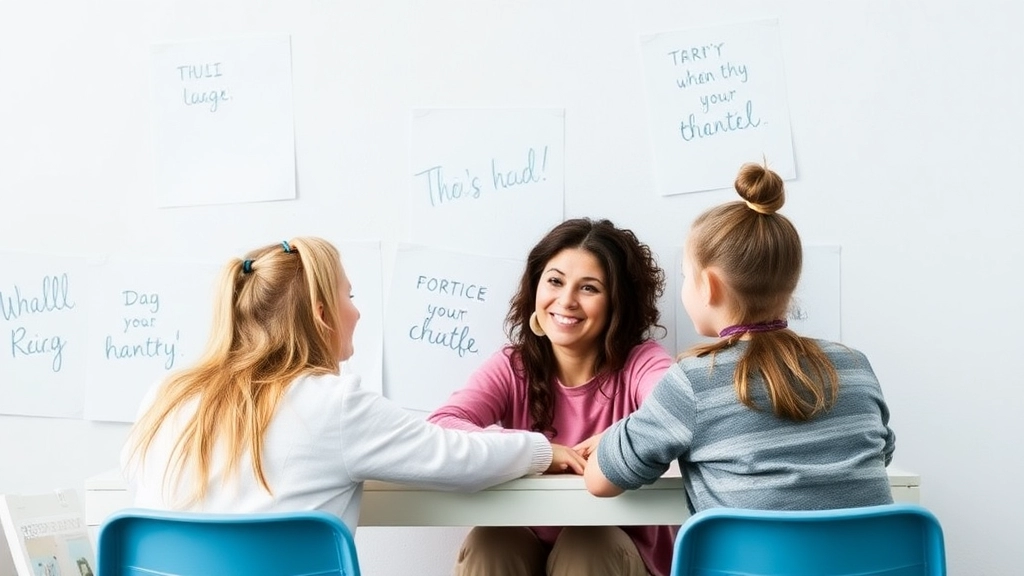
Ever wondered why summer camps are such a big deal?
It’s not just about the activities or the break from school.
It’s about building lifelong friendships and social skills.
Why Friendships Matter
Think back to your childhood.
Remember that one friend who made everything better?
Summer camps are like a friendship factory.
Kids meet peers from all walks of life, creating bonds that last a lifetime.
Social Skills in Action
Social skills aren’t just taught; they’re experienced.
At camp, kids:
- Communicate: They learn to express themselves without screens.
- Collaborate: Working together on projects teaches teamwork.
- Resolve Conflicts: Disagreements happen, and kids learn to solve them.
Real Stories, Real Connections
Take Sarah, for example.
She was shy and reserved.
But at camp, she met Emma.
They bonded over a shared love for arts and crafts.
By the end of the summer, Sarah was more confident and outgoing.
Tips for Parents
Worried about your child fitting in?
Here’s how to help:
- Encourage Openness: Talk to your child about making new friends.
- Role-Playing: Practice social scenarios at home.
- Stay Positive: Remind them that everyone is in the same boat.
The Lasting Impact
The friendships and social skills developed at camp don’t just fade away.
They stick.
Kids come home with:
- Better Communication Skills: They’re more articulate.
- Increased Empathy: They understand different perspectives.
- Stronger Confidence: They’re ready to tackle new challenges.
Learning New Skills Through Hands-On Experiences
Ever wondered why kids come back from summer camp with a bag full of new tricks? It’s because hands-on experiences are the secret sauce. Imagine your child learning new skills that aren’t just cool but super practical. Let’s break it down.
Why Hands-On Learning Rocks
First off, hands-on learning is the real deal. It’s not just about reading or listening; it’s about doing. And when kids do something themselves, it sticks. They remember it. Think about it â would you rather read about how to build a campfire or actually build one?
Real Skills for Real Life
At summer camps, kids dive into activities that teach them real-world skills. Here’s what they might get into:
- Cooking: Imagine your kid whipping up a meal. They learn basics like chopping veggies and advanced stuff like baking bread.
- Crafting: From making friendship bracelets to building birdhouses, these activities boost creativity and fine motor skills.
- Survival Skills: Setting up tents, navigating with a compass, or even fishing. These aren’t just fun; they’re life skills.
The Power of Practice
You know the saying, “Practice makes perfect”? It’s spot on. At camp, kids get to try, fail, and try again. They learn resilience and problem-solving. They get better because they keep at it. Plus, they learn to ask for help and work in teams â skills that are gold in any situation.
Stories from the Campfire
Let me tell you about Jake. Jake was a shy kid who barely spoke up in class. But at camp, he got into archery. The first few tries were a mess, but he kept at it. By the end of camp, he was hitting bullseyes. More importantly, Jake came back with a newfound confidence. He started speaking up more, not just about archery but in all areas of his life.
The Ripple Effect
Learning new skills at camp doesn’t just stay at camp. It ripples out. Kids come back home and show off their new skills, which boosts their self-esteem. They get curious about learning more, trying new things, and pushing their boundaries.
Why It Matters
So why does all this matter? Because these hands-on experiences are more than just fun. They’re foundational. They teach kids how to learn, how to fail, and how to succeed. They build a toolkit of skills that kids will carry with them for life. For more insights on the types of camps available, check out our Frederick Summer Camps Guide. And if you’re looking for creative activities, our Summer Camp Craft Ideas are a great resource.
Exploring Nature and Outdoor Adventures
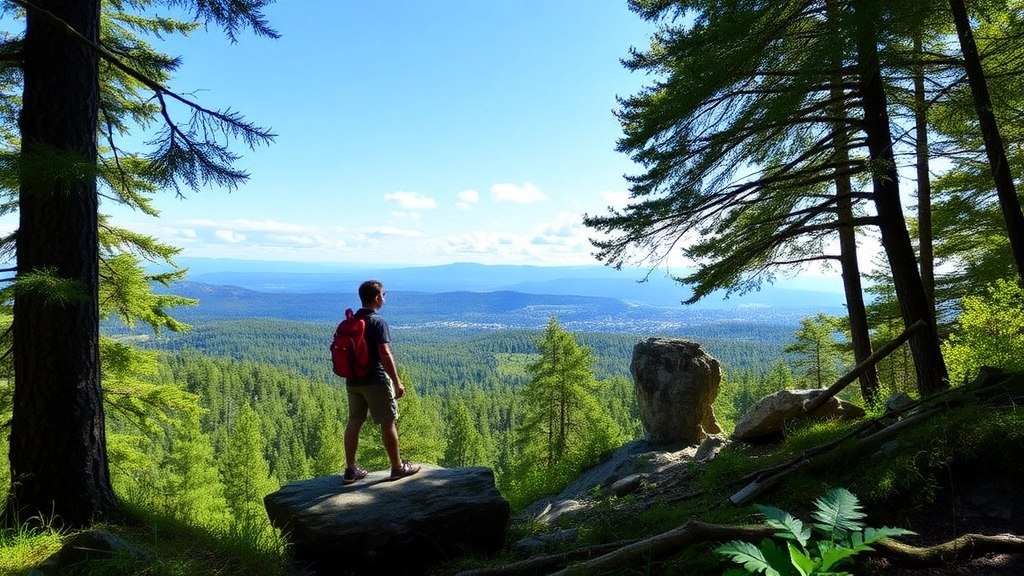
Ever wondered if kids these days are missing out on real adventures?
I get it, we live in a digital world. But, there’s something magical about exploring nature and diving into outdoor adventures at summer camps.
Why Nature?
Nature’s the ultimate playground. It’s where kids can:
- Climb trees: Builds strength and confidence.
- Hike trails: Teaches endurance and appreciation for the environment.
- Camp under the stars: Instills a sense of wonder and survival skills.
Real Stories, Real Impact
I remember a kid named Tom from camp last year. He was glued to his phone, typical teenager.
But after a week of hiking and canoeing, he was a different person.
He told me, “I’ve never felt more alive.”
Activities Galore
Summer camps offer a variety of nature-based activities:
- Fishing: Patience and skill.
- Bird watching: Attention to detail.
- Rock climbing: Overcoming fears.
Why It Matters
These experiences do more than just entertain. They:
- Promote physical health: Kids are active, moving, and exercising.
- Boost mental health: Nature has a calming effect.
- Foster independence: Kids learn to rely on themselves and their peers.
Breaking Down Barriers
Worried your child won’t adapt?
Here’s how camps make it easy:
- Guided tours: Professional guides ensure safety and learning.
- Group activities: Kids bond over shared experiences.
- Skill-building sessions: Step-by-step learning for beginners.
Takeaway
Exploring nature at summer camps isn’t just fun.
It’s transformative.
Kids return with stories, skills, and a newfound love for the outdoors.
And let’s be honest, who doesn’t want their child to come home saying, “I’ve never felt more alive”?
Promoting Independence and Confidence
Ever wondered how to get your kid to stand on their own two feet? Or how to build their confidence without hovering over them? Summer camps are the hidden gem you’ve been looking for. They’re not just about fun and games; they’re a boot camp for independence and confidence.
Why Independence Matters
Independence is more than just doing things on your own. It’s about making decisions, solving problems, and learning from mistakes. And let’s be honest, who doesn’t want their kid to be a little more self-sufficient?
Real-Life Skills
Summer camps are the perfect setting for kids to learn real-life skills. Here’s what they get:
- Decision-Making: From choosing activities to handling their own schedules, kids get a taste of making choices.
- Problem-Solving: Forgot your towel? Lost your water bottle? Camps teach kids to think on their feet.
- Responsibility: Looking after their own stuff and keeping their space tidy is a daily lesson in responsibility.
Boosting Confidence
Confidence isn’t something you can just hand over to your kid. It’s built through experiences, challenges, and yes, even failures.
- Trying New Things: Whether it’s rock climbing or performing in a talent show, camps push kids out of their comfort zones.
- Overcoming Fears: Facing fears head-on, like speaking in front of a group or trying a new sport, builds resilience.
- Positive Reinforcement: Camp counsellors are pros at encouragement, making sure each kid feels valued and capable.
Stories from the Campfire
Let me share a quick story. I remember this one kid, Timmy. Shy as a mouse on the first day, but by the end of the camp, he was leading his team in a scavenger hunt. His mum couldn’t believe the transformation. That’s the magic of campâkids discover strengths they never knew they had.
Practical Tips for Parents
Worried about sending your kid off to camp? Here’s how to ease your mind:
- Visit the Camp: Take a tour, meet the staff, and get a feel for the environment.
- Pack Together: Let your kid help with packing. It gives them a sense of responsibility.
- Set Expectations: Talk about the camp schedule and what they can expect. It helps reduce anxiety.
The Bigger Picture
Promoting independence and confidence isn’t just about the here and now. It’s about equipping kids with skills that will serve them for life. Think about itâtoday’s campfire leader is tomorrow’s team leader at work.
For more tips on how to prepare your child for camp, check out our top tips for summer tent camping and learn about the top qualities for effective summer camp leaders.
Unplugging from Technology and Encouraging Creativity
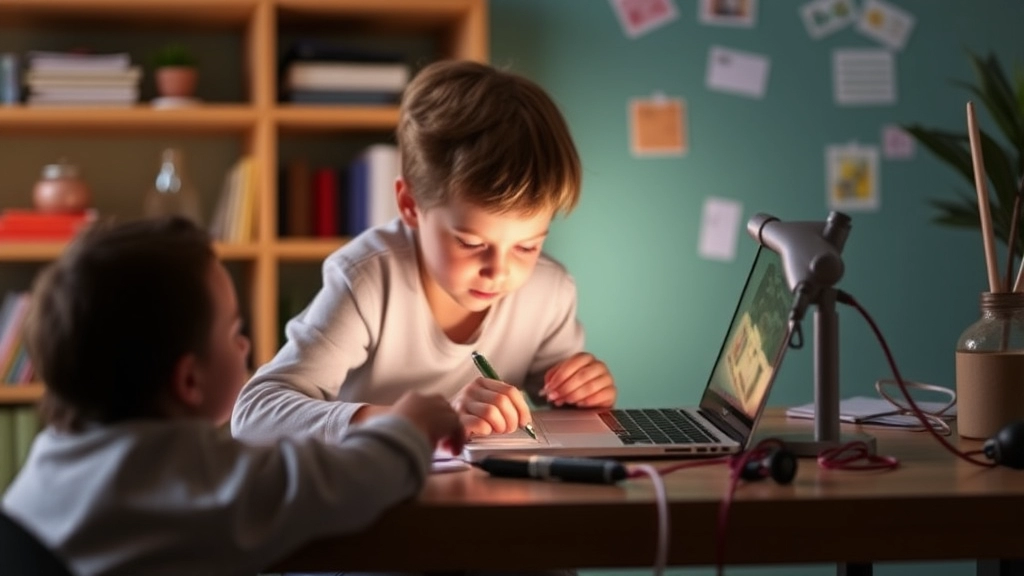
Ever feel like your kids are glued to their screens?
I get it.
In today’s digital age, it’s a real worry.
But summer camps offer a golden opportunity to unplug from technology and dive into the world around us.
Imagine this: No more endless scrolling or mindless gaming.
Instead, they get to explore their creativity.
How?
Let’s break it down:
- Arts and Crafts: From painting to pottery, camps are packed with activities that get those creative juices flowing.
- Music and Drama: Kids can try their hand at playing instruments, singing, or even acting in a play.
- Writing and Storytelling: They might discover a passion for writing stories or sharing tales around the campfire.
Real Stories, Real Impact
I remember one camper who was always on his phone.
He was hesitant at first.
But after a week of tech-free activities, he found a love for drawing.
By the end of camp, he was sketching every chance he got.
Why It Matters
When kids step away from screens, they:
- Develop New Skills: They learn to think outside the box.
- Boost Their Imagination: Without digital distractions, their minds wander and wonder.
- Build Confidence: Trying new things and succeeding gives them a sense of achievement.
Quick Tips for Parents
Want to encourage this at home?
- Set Tech-Free Times: Designate certain hours of the day for non-digital activities.
- Provide Creative Tools: Keep art supplies, musical instruments, and books handy.
- Join In: Show them how fun it can be by participating in creative activities together.
The Bigger Picture
Unplugging from technology isn’t just about reducing screen time.
It’s about opening doors to new experiences.
It’s about letting kids be kids.
And it’s about fostering a love for creativity that can last a lifetime.
So, next time you think about summer camps, remember: It’s not just a break from tech.
It’s a chance to encourage creativity and make some unforgettable memories.
The Role of Teamwork and Collaboration
Ever wonder why some people just seem to click with others so effortlessly? Or why certain teams outperform others? Well, it all boils down to the magic of teamwork and collaboration. And guess what? Summer camps are the perfect breeding ground for these essential skills.
Why Teamwork Matters
At summer camps, kids are thrown into a mix of activities that require them to rely on each other. Whether it’s building a raft, solving a scavenger hunt, or participating in a group sport, teamwork is the secret sauce that makes it all work. Here’s why it matters:
- Problem-solving: When kids work together, they learn to tackle problems from different angles.
- Communication: They get better at expressing their ideas and listening to others.
- Trust: They learn to trust their teammates and understand the value of mutual support.
Real-Life Example: The Raft-Building Challenge
Picture this: a group of kids standing by a lake, tasked with building a raft from a pile of logs, ropes, and barrels. At first, chaos reigns. But soon, they start to communicate, delegate tasks, and come up with a plan. By the end of it, they’ve not only built a raft but also a sense of camaraderie and trust. This is the kind of real-world lesson that sticks with them long after camp is over.
The Benefits of Collaboration
When kids collaborate, they’re not just working together; they’re learning life skills that will serve them well in the future. Here are some perks:
- Enhanced Creativity: Multiple minds mean multiple ideas. Collaboration sparks creativity.
- Conflict Resolution: Disagreements are inevitable, but learning to resolve them is key.
- Leadership Skills: Taking charge of a group project helps kids develop leadership qualities.
How Camps Foster Collaboration
Summer camps are designed to promote collaboration in a variety of ways:
- Group Activities: From team sports to group art projects, camps are full of opportunities to work together.
- Role Assignments: Kids often get assigned specific roles within a group, teaching them responsibility and the importance of each team member.
- Reflection Sessions: Many camps include time for reflection, where kids discuss what worked and what didn’t, reinforcing the lessons learned.
The Takeaway
So, why is teamwork and collaboration such a big deal at summer camps? Because it equips kids with the skills they need to succeed in life. They learn to communicate, solve problems, and trust one anotherâskills that will serve them well in school, work, and beyond.
For more insights on how summer camps can be a transformative experience, check out our Ultimate Guide to Summer Camps for Kids and discover the rich culture and traditions that make these camps so impactful.
Fun and Physical Fitness through Sports and Games
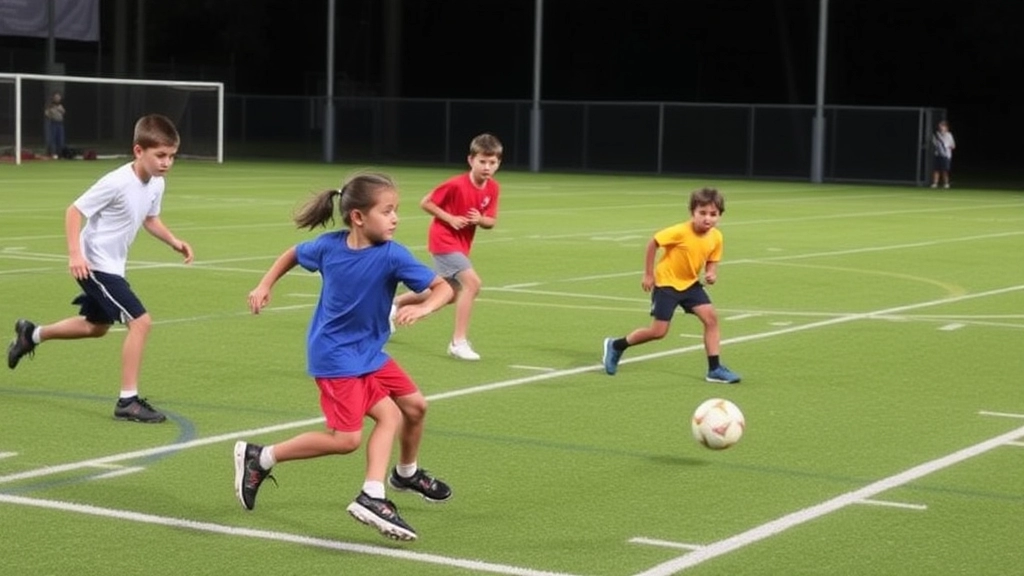
Ever wondered how to get your kids off the couch and moving this summer?
Summer camps are the perfect answer.
They blend fun and physical fitness seamlessly through sports and games.
Let’s dive into why this is a game-changer.
Why Sports and Games Matter
Kids these days are glued to screens.
It’s a struggle to get them outside.
But at summer camps, sports and games are the main events.
Here’s why they’re crucial:
- Boosts Physical Health: Regular activity means stronger muscles and bones.
- Mental Health Benefits: Exercise releases endorphins. Happy kids, happy life.
- Social Skills: Team sports teach cooperation and communication.
Types of Sports and Games
Camps offer a variety of activities.
From traditional sports to creative games, there’s something for everyone.
- Team Sports: Football, basketball, and volleyball.
- Individual Sports: Swimming, archery, and track.
- Creative Games: Capture the flag, scavenger hunts, and obstacle courses.
Each activity is designed to be inclusive and fun.
Real Stories, Real Impact
Remember Johnny?
He hated P.E. at school.
But at camp, he found a love for archery.
Now, he’s more confident and active.
Or take Lisa.
She was shy and introverted.
But after a summer of team sports, she made friends and became more outgoing.
These are just a couple of examples.
The Bigger Picture
It’s not just about the physical benefits.
Sports and games teach life skills.
- Discipline: Sticking to a training schedule.
- Teamwork: Working together to achieve a common goal.
- Resilience: Learning to bounce back from losses.
So, if you’re looking to boost your child’s physical fitness and social skills, summer camps are the way to go.
They’ll get fit, have fun, and make memories that last a lifetime.
Ready to sign up?
Your kids will thank you.
And who knows?
They might even thank you for getting them off the couch.
Fun and physical fitness through sports and games—it’s a win-win.
Opportunities for Personal Growth and Reflection
Ever wondered how summer camps can be a game-changer for personal growth? Let’s dive in.
Why Personal Growth Matters
Personal growth isn’t just a buzzword; it’s the backbone of becoming a well-rounded individual. At summer camps, kids get a unique chance to step out of their comfort zones and face new challenges. This isn’t just about learning how to pitch a tent or start a fireâthough those are cool skills too. It’s about developing resilience, self-awareness, and a sense of responsibility.
Real-Life Stories: Growth in Action
Take Sarah, for instance. She was shy and hesitant about joining group activities. But after a few days of team-building exercises and solo reflection time, she found her voice. She even led her group in a scavenger hunt, something she wouldn’t have dreamed of doing before camp. This is what personal growth looks like in real life.
Reflection Time: The Secret Sauce
Reflection is where the magic happens. Camps often build in quiet time for kids to think about their experiences and what they’ve learned. This isn’t just downtime; it’s growth time. Here’s what kids usually reflect on:
- Achievements: What did they accomplish that they never thought they could?
- Challenges: What obstacles did they face, and how did they overcome them?
- Goals: What do they want to achieve next?
How Camps Foster Personal Growth
- Journaling: Many camps encourage kids to keep journals. Writing down thoughts and experiences helps solidify learning and fosters self-awareness.
- Mentorship: Camp counsellors often act as mentors, providing guidance and support. This relationship can be crucial for personal development.
- Feedback: Constructive feedback from peers and counsellors helps kids understand their strengths and areas for improvement.
The Long-Term Impact
The skills and insights gained at camp don’t just disappear when the tents are packed up. They stick around, helping kids navigate future challenges. They learn to set goals, face fears, and reflect on their experiencesâskills that are invaluable in any walk of life.
Real Questions, Real Answers
- “Will my child really benefit from this?” Absolutely. The structured yet flexible environment of a summer camp is designed to promote personal growth.
- “Is it worth the investment?” Consider it an investment in your child’s future. The experiences and lessons learned at camp can have a lasting impact.
Keep It Real, Keep It Fresh
Remember, personal growth at summer camps isn’t about transforming into someone else. It’s about becoming the best version of yourself. So, if you’re on the fence about sending your kid to camp, think about the opportunities for personal growth and reflection. It’s not just a summer activity; it’s a life-changing experience.
For more insights on how summer camps can foster personal growth, check out our ultimate guide to being a summer camp director and discover the fun activities at summer camp that make these experiences so enriching.
Creating Lasting Memories and Cherishing Childhood Adventures
Ever wondered what makes summer camps so unforgettable?
Let’s dive into it.
Why Are Summer Camps So Memorable?
Think back to your own childhood.
Remember those moments that stuck with you?
Summer camps are a goldmine for creating those lasting memories.
Why?
- New Experiences: Every day is a new adventure.
- Friendships: Bonds formed here often last a lifetime.
- Challenges: Overcoming fears and trying new things.
The Magic of New Experiences
At camp, every day is different.
You might start the day with a hike in the woods.
By afternoon, you’re learning to paddle a canoe.
And by evening, it’s all about campfire stories and marshmallows.
Why does this matter?
- Variety Keeps It Exciting: Kids never get bored.
- Hands-On Learning: They get to try things they’ve never done before.
Building Bonds That Last
One of the biggest perks of camp?
The friendships.
Kids meet others from different places, with different backgrounds.
They learn to get along, work together, and have fun.
Why is this important?
- Social Skills: They learn to communicate and collaborate.
- Lifelong Friends: Some of these friendships last forever.
Overcoming Challenges
Camp isn’t just fun and games.
There are challenges too.
Maybe it’s climbing a rock wall or performing in a talent show.
Here’s what kids gain:
- Confidence: They learn they can do more than they thought.
- Resilience: They bounce back from failures and try again.
Real Stories, Real Memories
Remember that time you finally hit the bullseye in archery?
Or when you and your friends built the best fort ever?
These stories stick with you.
They become the tales you tell over and over.
Why do these stories matter?
- Shared Experiences: They bond kids together.
- Personal Growth: They show kids what they’re capable of.
Key Takeaways
- New Experiences: Keep it fresh and exciting.
- Friendships: Build bonds that last.
- Challenges: Grow confidence and resilience.
- Stories: Create memories that stick.
So, if you’re wondering whether to send your kid to camp, think about the memories they’ll make.
The friendships they’ll form.
The challenges they’ll overcome.
And the stories they’ll cherish forever.
For more insights on the best camps, check out our top summer camps for teens and discover affordable summer camp options to make the best choice for your child.
FAQs about Summer Camp Fun
Is summer camp fun for kids?
Absolutely! Summer camps offer a variety of activities that are both entertaining and educational, ensuring kids have a great time.
What makes summer camp special?
Summer camps are unique because they provide opportunities for kids to build lifelong friendships, develop social skills, explore nature, and engage in creative and physical activities.
How do summer camps help in building friendships?
At summer camps, kids meet peers from diverse backgrounds, engage in group activities, and work together on projects, fostering strong, lasting friendships.
What kind of social skills do kids learn at camp?
Kids learn to communicate effectively, collaborate with others, and resolve conflicts, all of which are essential social skills.
Are there real-life examples of kids benefiting from camp?
Yes, many kids experience personal growth at camp. For example, shy children often become more confident and outgoing after bonding with peers over shared interests.
What outdoor activities are available at summer camps?
Summer camps offer a range of outdoor activities such as hiking, climbing trees, camping under the stars, fishing, bird watching, and rock climbing.
Why is exploring nature important for kids?
Exploring nature helps kids build physical strength, appreciate the environment, and develop survival skills. It also promotes mental health and fosters independence.
How do summer camps encourage creativity?
Summer camps provide various creative activities like arts and crafts, music and drama, and writing and storytelling, allowing kids to explore and develop their creative talents.
What are the benefits of unplugging from technology at camp?
Unplugging from technology helps kids develop new skills, boost their imagination, and build confidence by trying new activities and succeeding in them.
What sports and games are offered at summer camps?
Camps offer a variety of sports and games, including team sports like football and basketball, individual sports like swimming and archery, and creative games like capture the flag and scavenger hunts.
How do sports and games at camp benefit kids?
Sports and games improve physical health, enhance mental well-being, and teach social skills such as teamwork and communication. They also instill discipline, teamwork, and resilience.
How can parents help their children prepare for camp?
Parents can encourage openness, practice social scenarios through role-playing, and maintain a positive attitude to help their children feel more comfortable and excited about camp.
What lasting impacts do summer camps have on children?
Children return from camp with better communication skills, increased empathy, stronger confidence, and a newfound love for the outdoors and creativity.
Is summer camp suitable for all children?
Yes, summer camps are designed to be inclusive and offer activities that cater to a wide range of interests and abilities, making them suitable for all children.
References
-
The Benefits of Camp: Why Camp?
-
The Benefits of Summer Camp
-
The Psychological Benefits of Summer Camp

